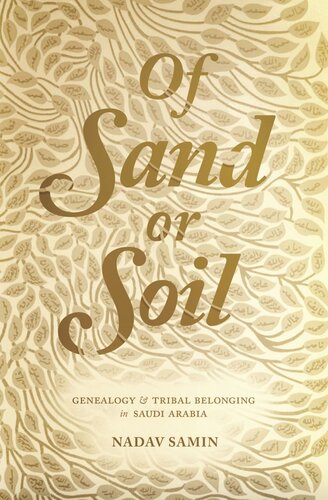

Most ebook files are in PDF format, so you can easily read them using various software such as Foxit Reader or directly on the Google Chrome browser.
Some ebook files are released by publishers in other formats such as .awz, .mobi, .epub, .fb2, etc. You may need to install specific software to read these formats on mobile/PC, such as Calibre.
Please read the tutorial at this link: https://ebookbell.com/faq
We offer FREE conversion to the popular formats you request; however, this may take some time. Therefore, right after payment, please email us, and we will try to provide the service as quickly as possible.
For some exceptional file formats or broken links (if any), please refrain from opening any disputes. Instead, email us first, and we will try to assist within a maximum of 6 hours.
EbookBell Team

4.7
106 reviewsWhy do tribal genealogies matter in modern-day Saudi Arabia? What compels the strivers and climbers of the new Saudi Arabia to want to prove their authentic descent from one or another prestigious Arabian tribe? Of Sand or Soil looks at how genealogy and tribal belonging have informed the lives of past and present inhabitants of Saudi Arabia and how the Saudi government's tacit glorification of tribal origins has shaped the powerful development of the kingdom’s genealogical culture.
Nadav Samin presents the first extended biographical exploration of the major twentieth-century Saudi scholar Ḥamad al-Jāsir, whose genealogical studies frame the story about belonging and identity in the modern kingdom. Samin examines the interplay between al-Jāsir’s genealogical project and his many hundreds of petitioners, mostly Saudis of nontribal or lower status origin who sought validation of their tribal roots in his genealogical texts. Investigating the Saudi relationship to this opaque, orally inscribed historical tradition, Samin considers the consequences of modern Saudi genealogical politics and how the most intimate anxieties of nontribal Saudis today are amplified by the governing strategies and kinship ideology of the Saudi state.
Challenging the impression that Saudi culture is determined by puritanical religiosity or rentier economic principles, Of Sand or Soil shows how the exploration and establishment of tribal genealogies have become influential phenomena in contemporary Saudi society. Beyond Saudi Arabia, this book casts important new light on the interplay between kinship ideas, oral narrative, and state formation in rapidly changing societies.